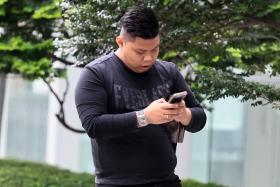Experts: Singaporeans equipped to handle aftermath of terrorist attack
Most experts here agree that Singaporeans are better equipped to handle the aftermath of any such acts
Will Singaporeans be able to pull together in an event of a terrorist attack on home soil?
Will we lapse into a state of paranoia and suspicion directed at our next-door neighbours?
France has been struggling to band together, with pockets of Islamophobia evident, after Paris saw 129 people killed last Friday in a terrorist attack, which terror group Islamic State in Iraq and Syria (ISIS) has claimed responsibility for.
But most experts here say that Singaporeans are better equipped to handle the aftermath of such an attack.
Although it would be a test of our national resilience, it could also bring the various ethno-religious communities closer, said Iseas-Yusof Ishak Institute fellow Mustafa Izzuddin.
He believes that in Singapore's case, it will bring the country closer because of three factors:
- the denouncing of ISIS by the local Muslim community;
- a growing understanding that ISIS has nothing do with Islam;
- the political leadership taking lengths to disassociate the local Muslim community from ISIS.
He added: "There is nothing racial or religious about ISIS; they are a scourge to humanity in that not only non-Muslims but also Muslims have been either victimised or decimated by the heinous acts of ISIS."
At the sidelines of the recent Group of 20 (G20) summit in Antalya, Turkey, Prime Minister Lee Hsien Loong said that Singaporeans would need to be mentally prepared for such an attack.
In Singapore, racial and religious harmony has always been a priority of government policy.
And this has shown results: a 2013 study on race by the Institute of Policy Studies and OnePeople.Sg found that more than 90 per cent of Chinese respondents said they were comfortable with Indians and Malays as neighbours and employees - and about 85 per cent as close friends.
Professor Rohan Gunaratna of the S Rajaratnam School of International Studies noted Singapore's strong social fabric because of policies promoting multi-racial and multi-culturalism from a young age.
MUTUAL RESPECT
"When you (go to) school together, enjoy each other's food, participate in one another's festivals, and respect each other's Gods, it is very hard to go and kill, maim and attack your neighbour and burn his belongings," he said.
And much of this is still continued in the community today by groups like the inter-racial and religious confidence circles (IRCC). Across Singapore, grassroots leaders from different races and religions come together to organise meetings and activities.
Chairman of the Bukit Timah IRCC Lim Cheng Hoe said that an attack like the one that occurred in Paris might shake people's trust in the authorities and cause the economy to come to a standstill.
"This is because Singapore is such a small place, even if the attack were to happen in Jurong, or Orchard, you'd still feel it's somewhere close to home," he said.
But Mr Lim said that Singaporeans are a resilient bunch who will band together in times of difficulty, like what happened during the national week of mourning in March when former Prime Minister Lee Kuan Yew died.
Another grassroots leader, Dr Karunanithy Ramasamy, who is vice-chairman of the Telok Blangah IRCC, said: "A majority of Singaporeans understand the situation, that it's not a Muslim problem, it's not a Christian problem, but it's a terrorism problem.
"In any population, there will be some who will sow discord between the groups but when that happens, the policies that are in place will be sufficient to deal with them."
When you (go to) school together, enjoy each other's food, participate in one another's festivals, and respect each other's Gods, it is very hard to go and kill, maim and attack your neighbour and burn his belongings.
- Professor Rohan Gunaratna of the S Rajaratnam School of International Studies
There is nothing racial or religious about ISIS; they are a scourge to humanity in that not only non-Muslims but also Muslims have been either victimised or decimated by the heinous acts of ISIS.
- Iseas-Yusof Ishak Institute fellow Mustafa Izzuddin
Get The New Paper on your phone with the free TNP app. Download from the Apple App Store or Google Play Store now



